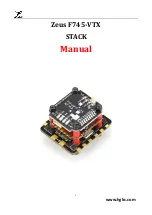
With your telescope set up, you are ready to use it for observing. This section covers visual observing hints for both solar system
and deep sky objects as well as general observing conditions which will affect your ability to observe.
O
O
b
b
s
s
e
e
r
r
v
v
i
i
n
n
g
g
t
t
h
h
e
e
M
M
o
o
o
o
n
n
Often, it is tempting to look at the Moon when it is full. At this time, the face we see is fully illuminated and its light can be
overpowering. In addition, little or no contrast can be seen during this phase.
One of the best times to observe the Moon is during its partial phases (around the
time of first or third quarter). Long shadows reveal a great amount of detail on
the lunar surface. At low power you will be able to see most of the lunar disk at
one time. Change to higher power (magnification) to focus in on a smaller area.
Choose the
lunar
tracking rate from the NexStar's MENU tracking rate options to
keep the moon centered in the eyepiece even at high magnifications.
L
L
u
u
n
n
a
a
r
r
O
O
b
b
s
s
e
e
r
r
v
v
i
i
n
n
g
g
H
H
i
i
n
n
t
t
s
s
•
To increase contrast and bring out detail on the lunar surface, use filters. A
yellow filter works well at improving contrast while a neutral density or polarizing filter will reduce overall surface
brightness and glare.
O
O
b
b
s
s
e
e
r
r
v
v
i
i
n
n
g
g
t
t
h
h
e
e
P
P
l
l
a
a
n
n
e
e
t
t
s
s
Other fascinating targets include the five naked eye planets. You can see Venus go through its lunar-like phases. Mars can
reveal a host of surface detail and one, if not both, of its polar caps. You will be able to see the cloud belts of Jupiter and the
great Red Spot (if it is visible at the time you are observing). In addition, you will also be able to see the moons of Jupiter as they
orbit the giant planet. Saturn, with its beautiful rings, is easily visible at moderate power.
P
P
l
l
a
a
n
n
e
e
t
t
a
a
r
r
y
y
O
O
b
b
s
s
e
e
r
r
v
v
i
i
n
n
g
g
H
H
i
i
n
n
t
t
s
s
•
Remember that atmospheric conditions are usually the limiting factor on how much
planetary detail will be visible. So, avoid observing the planets when they are low on
the horizon or when they are directly over a source of radiating heat, such as a rooftop or
chimney. See the "
Seeing Conditions
" section later in this section.
•
To increase contrast and bring out detail on the planetary surface, try using Celestron
eyepiece filters.
O
O
b
b
s
s
e
e
r
r
v
v
i
i
n
n
g
g
t
t
h
h
e
e
S
S
u
u
n
n
Although overlooked by many amateur astronomers, solar observation is both rewarding and fun. However, because the Sun is
so bright, special precautions must be taken when observing our star so as not to damage your eyes or your telescope.
Never project an image of the Sun through the telescope. Because of the folded optical design, tremendous heat build-up
will result inside the optical tube. This can damage the telescope and/or any accessories attached to the telescope.
For safe solar viewing, use a Celestron solar filter (see
Optional Accessories
section of manual) that reduces the intensity of the
Sun's light, making it safe to view. With a filter you can see sunspots as they move across the solar disk and faculae, which are
bright patches seen near the Sun's edge.
35
Summary of Contents for NexStar 5 SE
Page 1: ...INSTRUCTION MANUAL ...
Page 45: ...45 dix D M Appen aps of Time Zones ...
Page 46: ......
Page 47: ......
Page 48: ......
Page 49: ......
Page 50: ......
Page 51: ......
Page 52: ......
















































